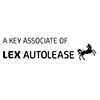In this month’s exploration of the future of the car industry, we take a look at 2020’s likely
success stories, and those who are suffering more than most.
We examine the various stakeholders in the industry and who is likely to win in these
extraordinary times (there are some who will!) and who will suffer disproportionately from the
seismic shifts we are seeing.
Winners
Company Directors in Owner-Managed Businesses
Undoubtedly the biggest group of benefactors with regards to car finance in 2020 are company owners, and directors of SME limited companies in particular, especially those who off-street parking at home. The changes to the tax environment around benefit in kind (BIK) tax on company cars, means that electric cars are now an incredibly tax efficient method of extracting money from a company.
Our analysis of over 40 company directors show the ‘True Annual Cost’ (TAC) of operating a car drops by 52% on average for a like for like vehicle (based on list price). This means that many clients are leaving PCP finance on existing diesel cars, and driving a more expensive electric vehicle for a 30-35% cost reduction in TAC.
For employees and non-business owner directors the impact is less, but still represents a huge saving over previous levels of tax on company cars. There is a pressing need for employers to recognize this benefit. In a world where cost-saving is paramount, there is an opportunity to lessen both the employees tax burden, as well as reduce the company’s National Insurance contributions.
Manufacturers
Amongst manufacturers, the obvious choice is Tesla. Environmental concerns feature high on the agenda of both politicians and the public (see article) and with 40,000 deaths per annum being attributed to air pollution, it is past time to address some basic issues. Tesla have the benefit of being first to market, and 2020 has seen their stock price soar.
It is not all rosy in the garden in Fremont, California, with the upcoming AGM set to be another stormy affair (more on this here).
2020 sees the world’s largest carmaker, Volkswagen Audi Group, bringing both the Porsche Taycan as a direct rival to the Model S, and the Volkswagen ID3, seen as a direct rival to the Model 3. This is just the beginning, with 2021 seeing far more competition for Tesla in the electric market, at a time where remote working and therefore lower mileage use perhaps bringing less ‘range anxiety’.
What all manufacturers need to do is balance the needs of an immediate return to profitability with their long-term plans. COVID-19 is set to leave a huge hole in the finances of many, if not all, automotive manufacturers. As noted recently by Deloitte; at a time when R&D is more important than ever, there is a danger that manufacturers “divert capital to shore up continuing operations, starving R&D funding for advanced technology initiatives”.
Losers
Dealerships
Many commentators would argue that the decline of retail brands such as TM Lewin, Debenhams and many others simply accelerates a trend that was happening anyway.
Similarly, the dealership model ‘as was’ looks increasingly out-moded and not fit for purpose in the new post-COVID world.
Whilst manufacturers have quietly acknowledged this for years, only Tesla have come up with a genuine alternative to the dealership model, and even the new world of leasing through large bank-owned leasing companies relies on the dealership network to distribute and maintain their assets.
What is clear is that the days of huge out-of-town sites with large fixed costs, car parks full of heavily leveraged depreciating stock, and little online offering is well overdue a rethink. The consolidation of the market into large dealership groups has been coming, and this will now accelerate as many dealers adjust to the post-lockdown world and find themselves simply unsustainable.
This may have a knock-on effect for the ‘stack them high, sell them cheap’ super brokers, who rely on dealerships selling them cars at a loss to help increase their bonus on the retail side of the business.
Customers - Service from Leasing Companies
As we highlighted recently in our guide to Leasing Companies blog, some leasing companies are struggling to adapt to the world of remote working, and service levels have dropped significantly.
Our customers have been particularly feeding back poor service from the manufacturer-owned companies, such as Audi Finance and Mercedes Finance.
The companies themselves are struggling with legacy IT systems, remote working, and an incredibly high demand for communication, whilst also having to forego 3-6 months income after the Financial Conduct Authority mandated they must give payment holidays to those who asked.








